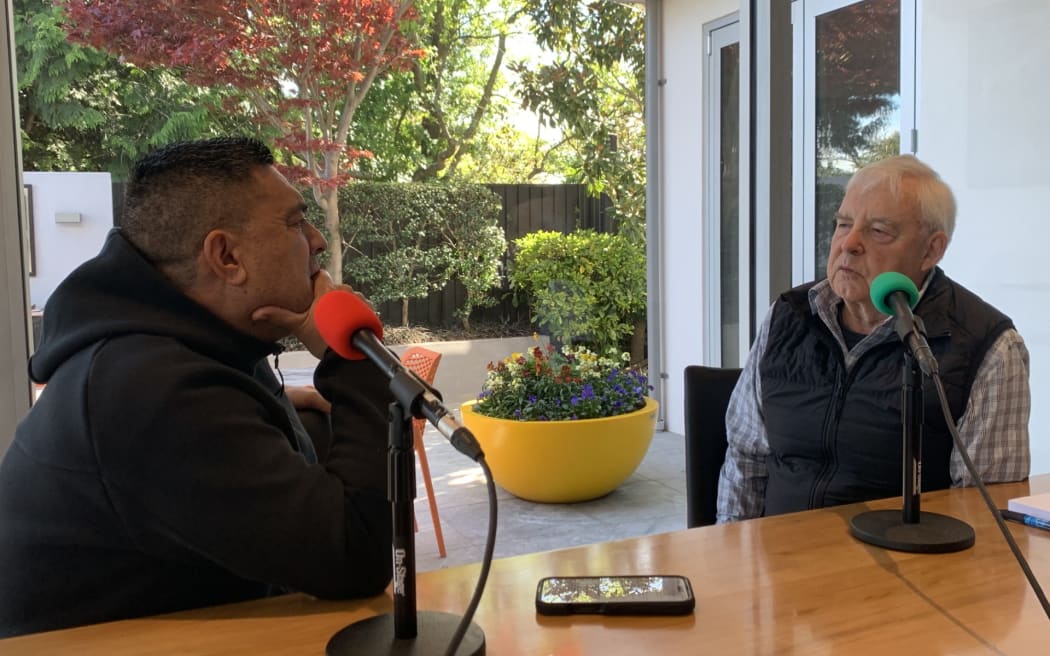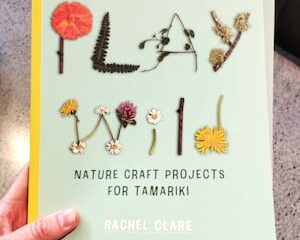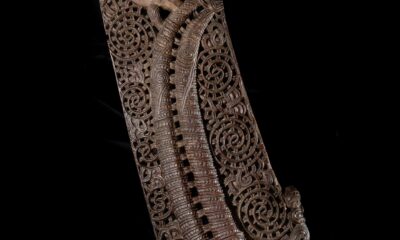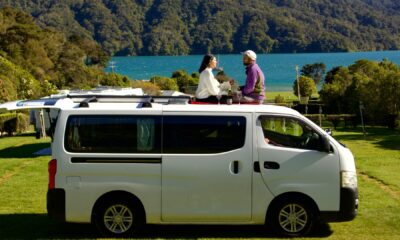Politics
Professor Atholl Anderson Reflects on a Life in Archaeology

Professor Atholl Anderson, a prominent figure in both archaeology and history, recently shared his insights into how these fields have shaped his life. He described his journey as one where history and archaeology “chose” him, influenced by early experiences and familial connections.
Reflecting on his upbringing, Anderson noted that various factors beyond personal choice—such as upbringing, personality, and early influences—played a significant role in his academic trajectory. “What you do in your life, I think, is determined by factors that are really beyond your control,” he stated during a conversation with Julian Wilcox, the host of Māpuna.
Exploring the Pacific and Maori History
For decades, Anderson has dedicated his research to exploring the origins and migration patterns of peoples across the Pacific. His work includes studying the first arrivals of the Māori in Aotearoa and their initial encounters with European settlers. Recently, he released a revised edition of his 1998 book, The Welcome of Strangers: A History of Southern Māori, which adds depth to his extensive research.
Anderson vividly recalls his childhood visits to his grandmother’s house in Hāwera, where he was surrounded by Māori artifacts. “I remember there being some pounamu pieces. There was something, it was either a taiaha or some other weapon,” he reminisced. These early experiences, combined with the expectation from both sides of his family to take education seriously, laid the foundation for his future endeavors.
His passion for history solidified during his time at Nelson College, where a teacher known as Jerp Patterson inspired him with his engaging teaching style. “He made it just so interesting and alive,” Anderson recalled. After spending some time working in Scandinavia, he returned to focus on Aotearoa and the broader Pacific region.
Researching Cultural Margins
Anderson’s scholarly interests often lead him to study cultural margins, which he believes are critical for understanding what works within societies. “Margins are where things are tested,” he explained. His research on Enderby Island, part of the Auckland Islands, exemplifies this approach. Here, he conducted excavations to assess the survival of Māori culture in extreme environments, revealing insights into the limitations faced by communities in marginal areas.
As his career evolved, Anderson developed a desire to delve deeper into the history of his own iwi, the Ngāi Tahu. He acknowledged the sensitivity surrounding archaeology within Māori communities, noting concerns about the excavation of ancestral sites. “People don’t want the sites of their ancestors dug up, and they fear what might be found,” he said. This necessitates careful dialogue about the benefits and implications of archaeological work.
Anderson has also played a significant role in the Ngāi Tahu claim at the Waitangi Tribunal since 1987, focusing on research related to mahinga kai. “It was a marvellous time, really, because it brought the iwi together,” he noted, highlighting the collaborative nature of the work.
Despite the challenges inherent in blending archaeology with history, Anderson remains optimistic about bridging the gap between the two disciplines. “Archaeology is anonymous. We really don’t know who those people were,” he said, acknowledging the difficulties in connecting archaeological findings with historical narratives. Yet, he believes progress is being made.
Through his extensive research and personal reflections, Professor Atholl Anderson continues to contribute significantly to the understanding of Māori history and Pacific archaeology, illustrating how personal experiences and academic pursuits can intertwine to shape a lifetime of inquiry and discovery.
-

 World2 weeks ago
World2 weeks agoPrivate Funeral Held for Dean Field and His Three Children
-

 Top Stories2 weeks ago
Top Stories2 weeks agoFuneral Planned for Field Siblings After Tragic House Fire
-

 Sports3 months ago
Sports3 months agoNetball New Zealand Stands Down Dame Noeline Taurua for Series
-

 Entertainment3 months ago
Entertainment3 months agoTributes Pour In for Lachlan Rofe, Reality Star, Dead at 47
-

 Entertainment2 months ago
Entertainment2 months agoNew ‘Maverick’ Chaser Joins Beat the Chasers Season Finale
-

 Sports3 months ago
Sports3 months agoSilver Ferns Legend Laura Langman Criticizes Team’s Attitude
-

 Sports1 month ago
Sports1 month agoEli Katoa Rushed to Hospital After Sideline Incident During Match
-

 World3 weeks ago
World3 weeks agoInvestigation Underway in Tragic Sanson House Fire Involving Family
-

 Politics2 months ago
Politics2 months agoNetball NZ Calls for Respect Amid Dame Taurua’s Standoff
-

 Top Stories2 weeks ago
Top Stories2 weeks agoShock and Grief Follow Tragic Family Deaths in New Zealand
-

 Entertainment3 months ago
Entertainment3 months agoKhloe Kardashian Embraces Innovative Stem Cell Therapy in Mexico
-

 World4 months ago
World4 months agoPolice Arrest Multiple Individuals During Funeral for Zain Taikato-Fox





















